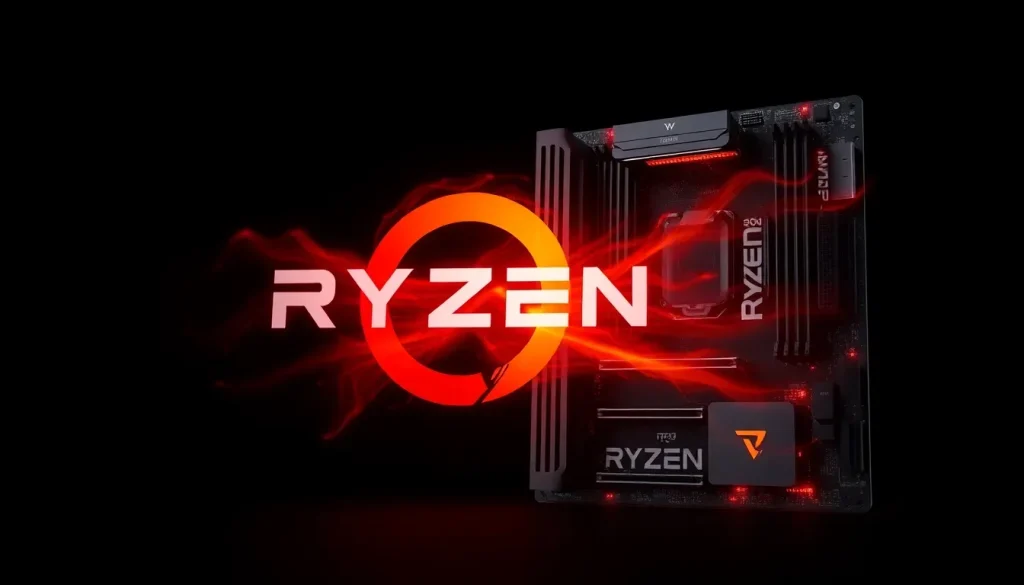Ryzen 7 9800X3D achieves double kill on X870E Pro RS

In the ever-evolving landscape of gaming hardware, the AMD Ryzen series has garnered significant attention for its impressive performance capabilities. However, with power comes responsibility, and recent reports highlight troubling issues with specific motherboards causing CPU failures. This article delves into the concerning trend surrounding the Ryzen 7 9800X3D and the ASRock X870E Pro RS motherboard, exploring the implications for users and the broader community.
- Understanding the Ryzen 7 9800X3D and Its Popularity
- ASRock X870E Pro RS: A Flawed Connection?
- The BIOS Dilemma: A Missed Opportunity?
- Investigating the Root Cause of CPU Failures
- The Broader Implications for AMD Users
- Resources for Affected Users
- Conclusion: The Future of Ryzen and Motherboard Partnerships
Understanding the Ryzen 7 9800X3D and Its Popularity
The Ryzen 7 9800X3D is part of AMD's acclaimed Ryzen lineup, designed for high-end gaming and productivity tasks. With its cutting-edge architecture and superior performance metrics, it has become the go-to choice for enthusiasts looking to maximize their gaming experience. Key features include:
- 8 cores and 16 threads for efficient multitasking.
- Advanced 3D V-Cache technology, increasing cache size for improved performance in gaming.
- High clock speeds reaching up to 5.0 GHz, delivering exceptional processing power.
As a result, the Ryzen 7 9800X3D has gained a cult following among gamers and content creators alike, eager to unlock its full potential through compatible motherboards.
ASRock X870E Pro RS: A Flawed Connection?
The X870E Pro RS motherboard has been cited as a recurring culprit in reports of CPU failures. A recent incident on Reddit showcased a user, known as ShendonZ, whose motherboard was responsible for the death of two Ryzen 7 9800X3D processors. This incident raises questions about the reliability of specific motherboards when paired with high-performance CPUs.
The situation is disheartening for those who invest in top-tier components, only to face hardware malfunctions shortly after installation. The user’s experience highlights a concerning pattern where:
- Initial CPU burnouts occur shortly after installation.
- The replacement CPU meets the same fate within a few months.
- Issues may escalate based on geographical relocations, complicating warranty claims.
This has led to frustration among users who expect products to operate reliably, especially when they are marketed for high performance.
The BIOS Dilemma: A Missed Opportunity?
In this particular case, the user did not update to the latest BIOS version, opting to stick with version 3.25, which was deemed stable by ASRock. However, the most recent update, version 3.40, may have included necessary fixes that could have prevented the CPU failures.
This situation serves as a reminder that:
- Regular updates to BIOS can address compatibility issues and improve performance.
- Manufacturer recommendations should be taken seriously, especially for high-performance components.
- Users should actively seek out the latest information and updates on their hardware.
Failing to keep firmware up to date may lead to complications that could have been easily avoided.
Investigating the Root Cause of CPU Failures
Despite extensive investigations, including a 200-hour analysis conducted by the team at Gamers Nexus, the exact cause of these CPU failures remains elusive. The complexity of modern hardware interactions means that identifying a singular issue can be challenging. Possible factors contributing to the failures may include:
- Inadequate power delivery systems within the motherboard.
- Overheating due to insufficient cooling solutions.
- Faulty manufacturing processes leading to component failures.
Determining the root cause is essential for both AMD and motherboard manufacturers to develop solutions that prevent these failures in the future.
The Broader Implications for AMD Users
The ongoing issues with the Ryzen 7 9800X3D and the X870E Pro RS motherboard have broader implications for the AMD community:
- Consumer Trust: Incidents like these erode consumer confidence in AMD products and their partners.
- Market Perception: Negative experiences can influence potential buyers, leading them to consider alternatives.
- Community Support: Users experiencing similar issues may find solace and solutions through community forums, fostering a collaborative spirit.
In light of these events, it is crucial for both AMD and motherboard manufacturers to address the issues transparently and work towards solutions that restore consumer trust.
Resources for Affected Users
For users facing issues related to CPU failures, there are several actions they can take:
- Document the failure, including when it occurred and under what conditions.
- Reach out to the manufacturer for warranty support and guidance.
- Participate in community forums to share experiences and gather insights from others.
- Stay updated on BIOS releases and apply necessary updates to ensure optimal performance.
Those affected by these incidents may also find valuable resources in the form of user-generated content and reviews. For instance, this video discusses the best X870/E motherboards for the Ryzen 7 9800X3D.
Conclusion: The Future of Ryzen and Motherboard Partnerships
The continuing saga of Ryzen 7 9800X3D failures linked to the ASRock X870E Pro RS motherboard serves as a cautionary tale for enthusiasts and manufacturers alike. As the industry pushes towards more powerful components, it is essential to ensure that reliability and safety are not compromised. AMD and its partners must work together to address these issues proactively, delivering solutions that enhance user experience and maintain the integrity of their brand.




Leave a Reply